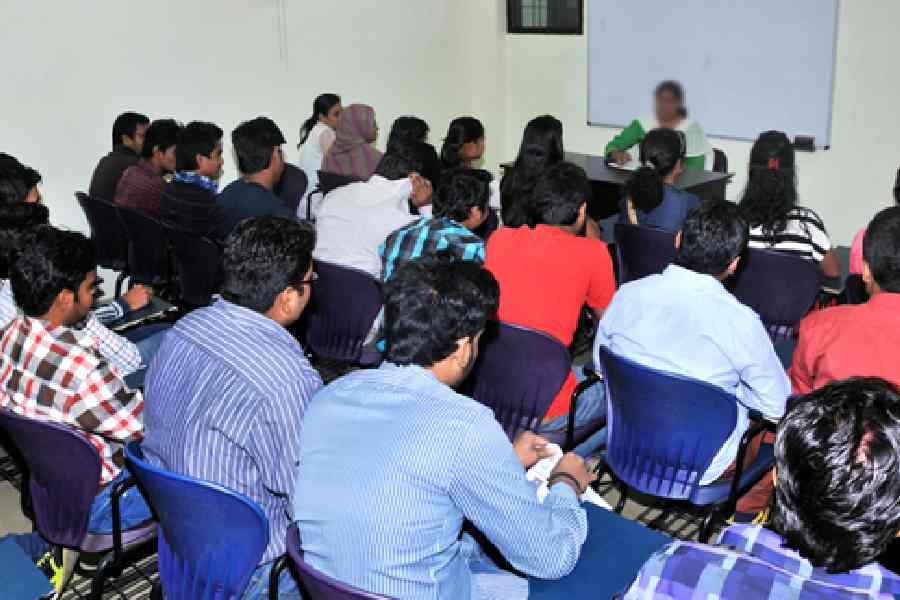The central government has issued guidelines for the regulation of private coaching institutes, accused widely of overcharging students and adopting unethical practices for exam success, but educationists have cited loopholes to express scepticism about effective implementation.
Last month, the Union education ministry issued “Guidelines for Regulation of Coaching Centres” to the states and Union Territories, advising them to consider establishing a legal framework based on these proposed norms.
Rajeev Kumar, a computer science professor at Jawaharlal Nehru University, Delhi, said the mere framing of rules was unlikely to help check the coaching centres’ depredations.
Prince Gajendra Babu, general secretary of the State Platform for Common School System-Tamil Nadu, which campaigns for education to be made entirely a public-funded affair, said the Centre should have banned private coaching altogether instead of regularising it under the guise of regulating it.
The guidelines define a coaching centre as a facility that coaches more than 50 students, and prohibit them from admitting students aged under 16, or those who haven’t cleared their secondary school examinations.
All coaching centres, existing or new, must register themselves with the state government with an undertaking from the proprietor that the coaching classes will not clash with the academic activities of the students at their schools or colleges.
The tuition fees shall be “fair and reasonable” and cannot be increased during a particular course, and receipts must be issued. However, the guidelines do not define “fair and reasonable”.
“When there is no (specific) bar (on fees), they can charge any fee. There is no bar on making a profit, either,” a Delhi University teacher said.
The coaching centres must provide the enrolled students with the prospectus, notes and other material without charging separate fees, the guidelines say.
Before a coaching centre enrols a student, he or she must be informed about the syllabus, the difficulty level of the exam and the intensity of preparation required.
The coaching centres are expected to engage counsellors and experienced psychologists to address possible mental stress among the students.
Violations of any of the provisions — if made part of a legal framework — can bring a fine of up to Rs 1 lakh.
Babu said the Centre was abdicating its responsibility to provide education. “The entire education (system) is now being handed over to the market. This is against the spirit, vision and provisions of the Constitution,” he said.
“Coaching, which is becoming part of a child’s life, is killing the spirit of learning. Instead of banning the coaching centres, the government is bringing in regulations only to legalise the commercialisation of education.”
He added: “These regulations are nothing but a mechanism to facilitate the multinational coaching companies that are waiting to enter the Indian market.”
Babu said official sanction for the coaching centres will only increase the corrupt practices and cause further strain to the students and their parents.
He said a postgraduate degree plus a degree in teacher education should be the minimum qualification for a person to teach at these coaching institutes, since they will deal with higher secondary or higher courses.
Rajeev Kumar said there were already a lot of rules against profiteering in higher education, including a ban on capitation fees, but their implementation was very poor.











